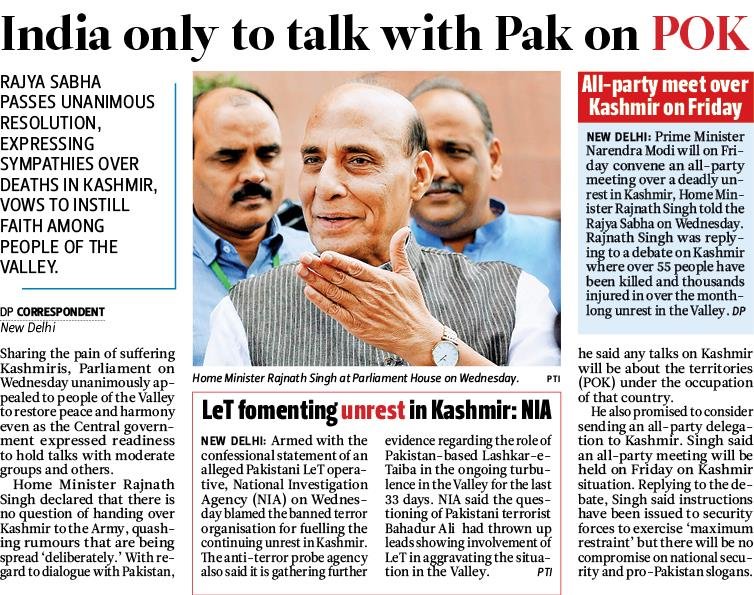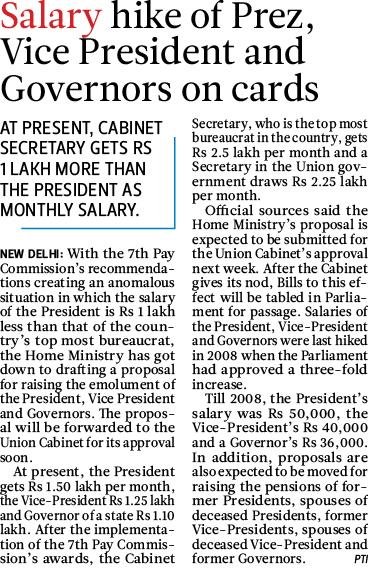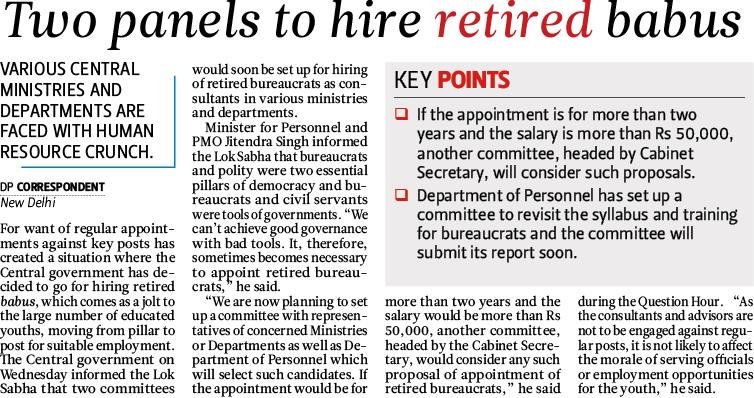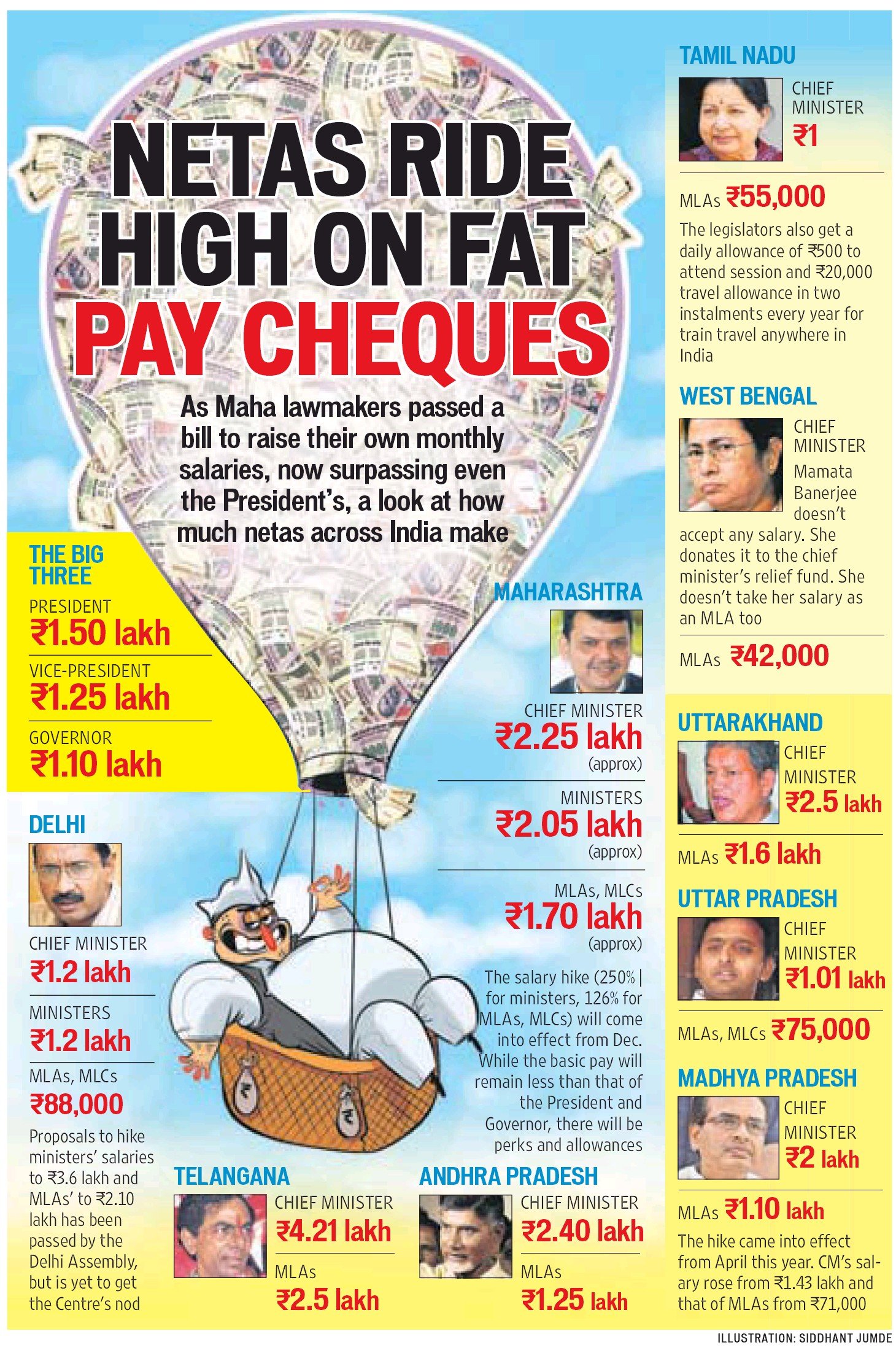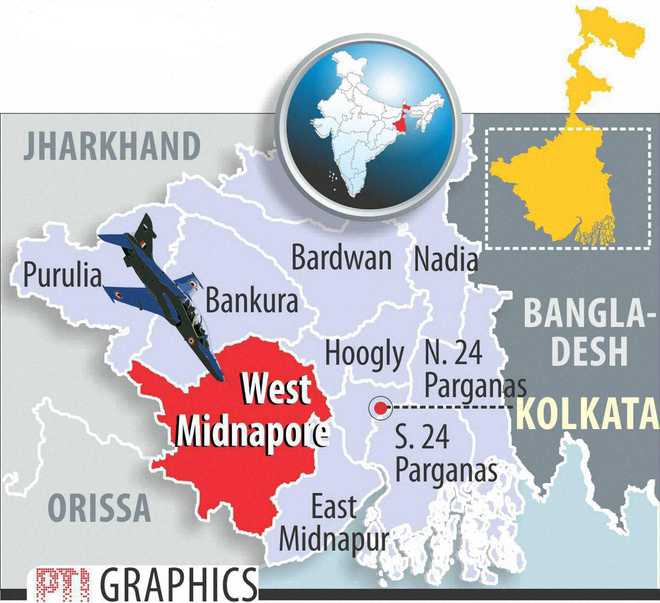
General DS Suhag (centre) during a visit to Kashmir on Friday.
Tribune News Service
Srinagar, September 9
Amid the ongoing unrest, Army Chief General Dalbir Singh Suhag reviewed the security situation in the Kashmir valley today.A defence spokesman said the Army Chief visited defence formations in the north and south of the Valley.“The Army Chief reviewed the security situation and collaborative measures of security forces towards ensuring peace and calm in the region,” the spokesman said.The Army Chief was briefed by Lt Gen Satish Dua, General Officer Commanding (GOC), Chinar Corps, on the various initiatives undertaken by the Army all across the Valley to bring about peace.“General Suhag reinforced the need to synergise efforts with all other stakeholders and assured all support for bringing normalcy, particularly in south Kashmir,” the spokesman said.General Suhag landed in Srinagar this morning and visited various forward areas on the Line of Control in Kupwara district to review the preparedness of the Army in dealing with infiltration from across the border.The Army Chief was accompanied by Lt Gen DS Hooda, General Officer Commanding-in-Chief, Northern Command, and the Chinar Corps GOC.This was the Army Chief’s fourth visit to the state since the unrest erupted in July. He commended all ranks of Chinar Corps for their operational preparedness and commitment to the cause of national security. “He directed everyone to ensure strict vigil along the Line of Control,” the spokesman said.























































